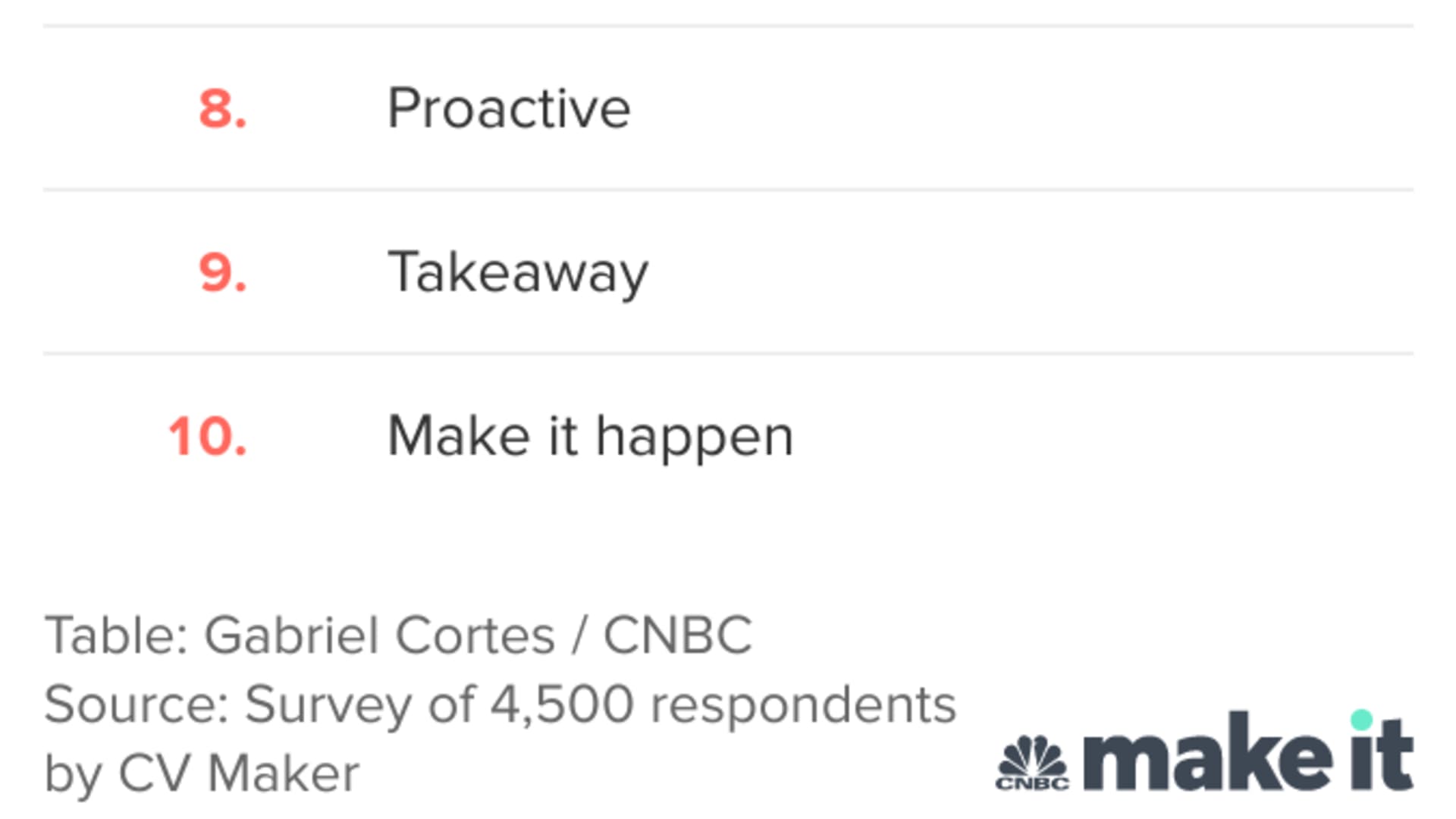
You might think you sound more professional using corporate lingo, but chances are, you're probably annoying or confusing your co-workers.
Sixty-three percent of working professionals find it "off-putting" when colleagues use workplace jargon in their communication, and 78% reported stopping themselves from talking or sending messages to avoid using jargon, according to a Jan. 2022 Slack survey of 2,000 remote and hybrid workers in the U.S.
Some office buzzwords are more egregious than others — that's at least according to CV Maker, which recently asked more than 4,500 people which corporate buzzwords they considered to be unbearably irritating.
Here are the 10 most annoying workplace jargons to avoid according to CV Maker, and tips for communicating better at work:

These jargony phrases are particularly off-putting because they are vague and can often come across as passive aggressive, Dawid Wiacek, a career and executive coach, tells CNBC Make It.
Get Tri-state area news delivered to your inbox. Sign up for NBC New York's News Headlines newsletter.
"The word itself might be harmless, but depending on the power dynamic between the two people communicating, and the context it's used in, it can be really harmful — or just downright cringeworthy," he explains.
Money Report
Take "circle back," for example: It's arguably one of the most popular phrases in our workplace vernacular – but it's typically used when "you don't have anything productive to add to the conversation or when you really don't want to deal with something in the moment," LaShawn Davis, a human resources consultant in Atlanta, notes.
Wiacek also points out that idioms and other jargon can exclude those working outside their native language and people with different hobbies than their colleagues. For example, sports-related jargon like "it's a home run" or "knock it out of the park" could be confusing to someone who doesn't watch baseball, just as idioms like "table this conversation" or "piggyback" might be unfamiliar to non-native English speakers.
Other phrases translate to thinly veiled criticisms of someone's work.
"When we celebrate a win or compliment someone on a job well done, we never encourage them to 'take ownership,'" Davis says. "That phrase is always used in a negative tone, it implies that you need to take on more responsibilities or work harder."
In those situations, it's better to give the person specific feedback on what they can improve and express your appreciation for the work they are putting in, regardless if it meets your expectations or not, Davis suggests.
The best approach to enhancing communication with your colleagues is the simplest, according to Jaime DeLanghe, senior principal product management at Slack: Ask your colleagues what their communication preferences are.
"The way we work with one another has changed, and adapting our styles has become a sign of basic workplace respect," she told CNBC Make It earlier this year. "Don't be afraid to speak up and request to communicate differently or to take the initiative to ensure you're corresponding in the best way possible with peers."
Want to earn more and work less? Register for the free CNBC Make It: Your Money virtual event on Dec. 13 at 12 p.m. ET to learn from money masters how you can increase your earning power.
Check out:
10 common phrases that make you sound passive-aggressive in the workplace
Sign up now: Get smarter about your money and career with our weekly newsletter






